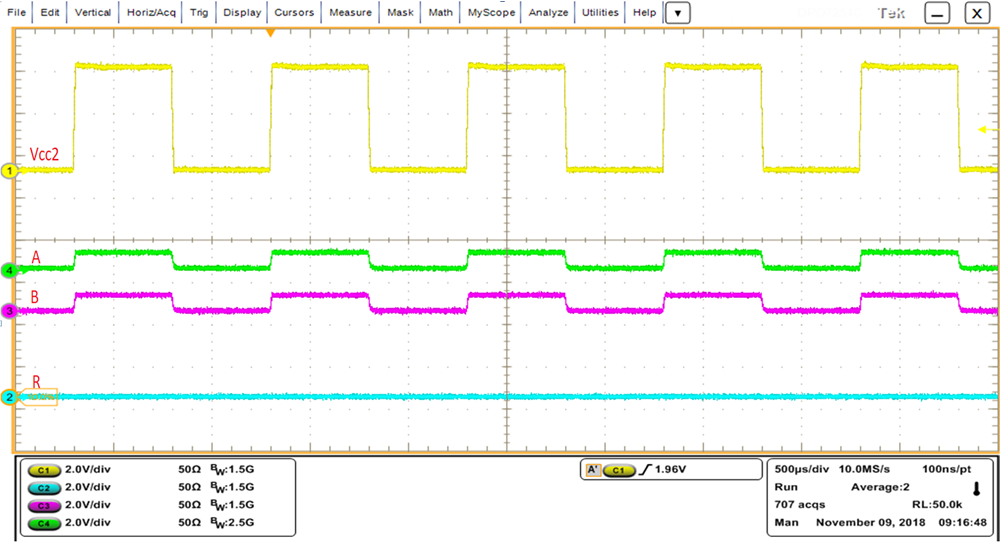ZHCSIV2C September 2018 – September 2019 ISO1500
PRODUCTION DATA.
- 1 特性
- 2 应用
- 3 说明
- 4 修订历史记录
- 5 Pin Configuration and Functions
-
6 Specifications
- 6.1 Absolute Maximum Ratings
- 6.2 ESD Ratings
- 6.3 Recommended Operating Conditions
- 6.4 Thermal Information
- 6.5 Power Ratings
- 6.6 Insulation Specifications
- 6.7 Safety-Related Certifications
- 6.8 Safety Limiting Values
- 6.9 Electrical Characteristics: Driver
- 6.10 Electrical Characteristics: Receiver
- 6.11 Supply Current Characteristics: Side 1(ICC1)
- 6.12 Supply Current Characteristics: Side 2(ICC2)
- 6.13 Switching Characteristics: Driver
- 6.14 Switching Characteristics: Receiver
- 6.15 Insulation Characteristics Curves
- 6.16 Typical Characteristics
- 7 Parameter Measurement Information
- 8 Detailed Description
- 9 Application and Implementation
- 10Power Supply Recommendations
- 11Layout
- 12器件和文档支持
- 13机械、封装和可订购信息
6.16 Typical Characteristics
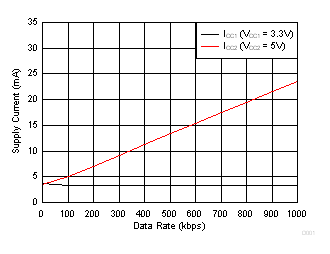
| TA = 25°C | DE = VCC1 | RE = GND1 |
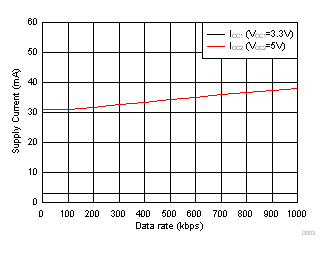
| TA = 25°C | DE = VCC1 | RE = GND1 |
| Driver load = 120 ohm || 50 pF | Load on R = 15 pF | |
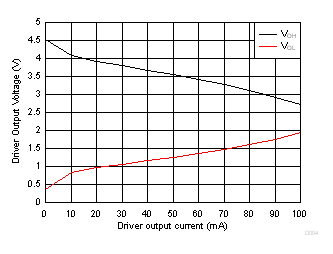
| DE = VCC1 | D = GND1 | VCC1 = 3.3 V |
| VCC2 = 5 V | TA = 25°C | |
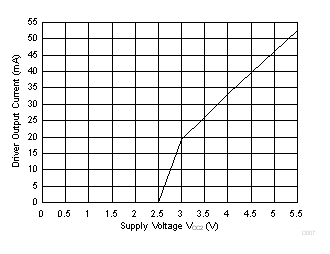
| TA = 25°C | RL = 54 ohm | DE = D = VCC1 |
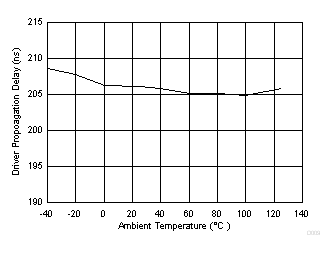
| VCC1 = 3.3 V | VCC2 = 5 V | |
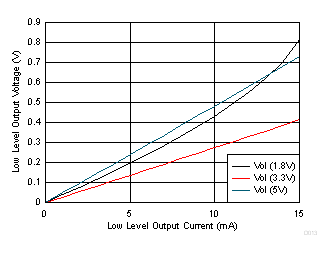
| TA = 25°C | ||
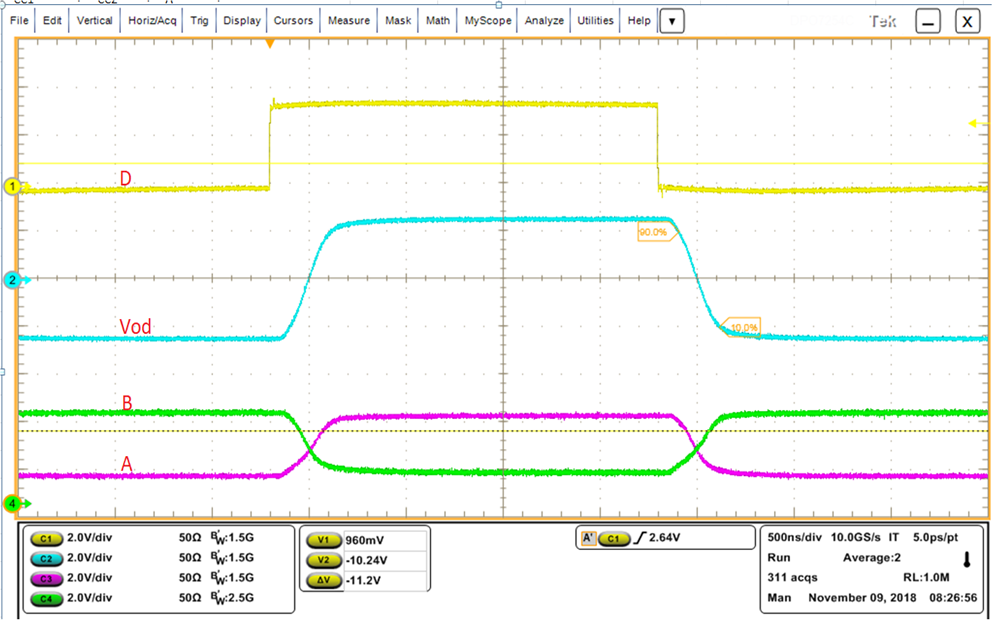
| VCC1 = 3.3 V | VCC2 = 5 V | DE = VCC1 |
| TA = 25°C | ||
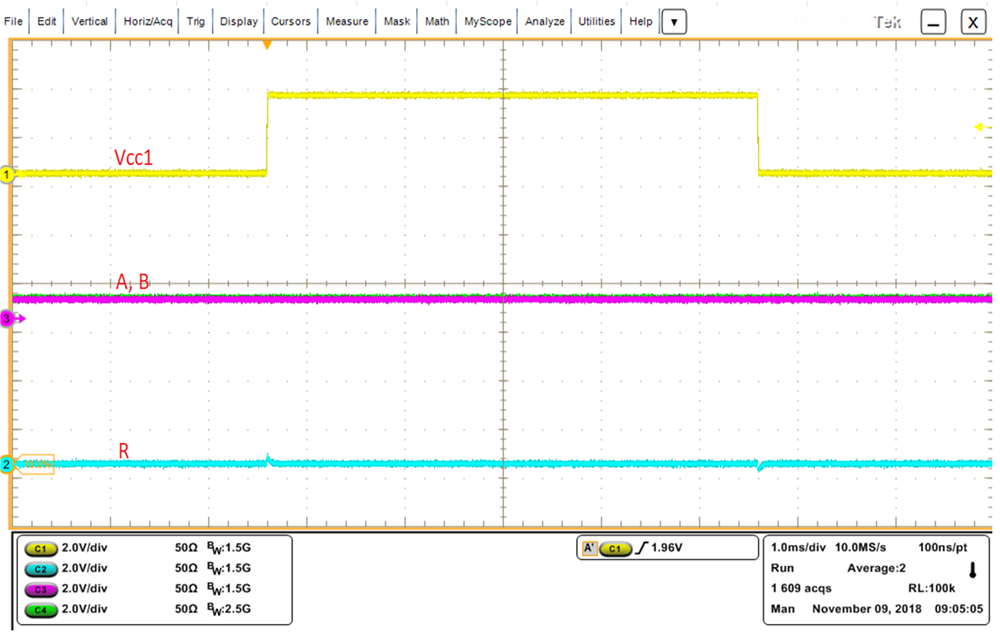
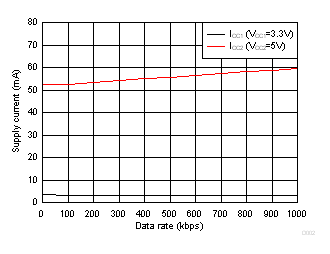
| TA = 25°C | DE = VCC1 | RE = GND1 |
| Driver load = 54 ohm || 50 pF | Load on R = 15 pF |
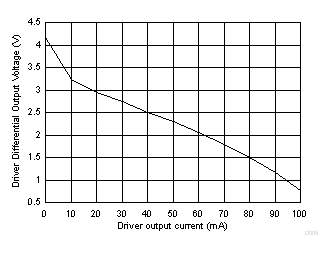
| DE = VCC1 | D = GND1 | VCC1 = 3.3 V |
| VCC2 = 5 V | TA = 25°C | |
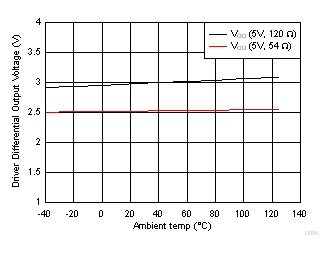
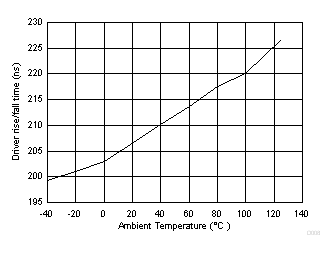
| VCC1 = 3.3 V | VCC2 = 5 V | |
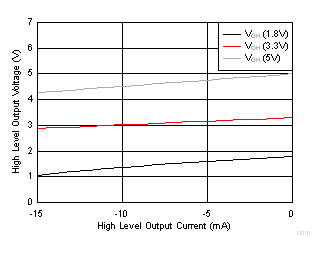
| TA = 25°C | ||
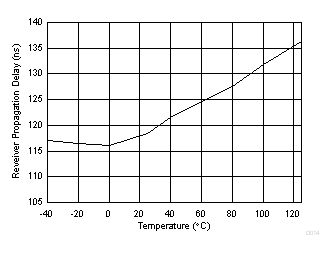
| VCC1 = 3.3 V | VCC2 = 5 V | |
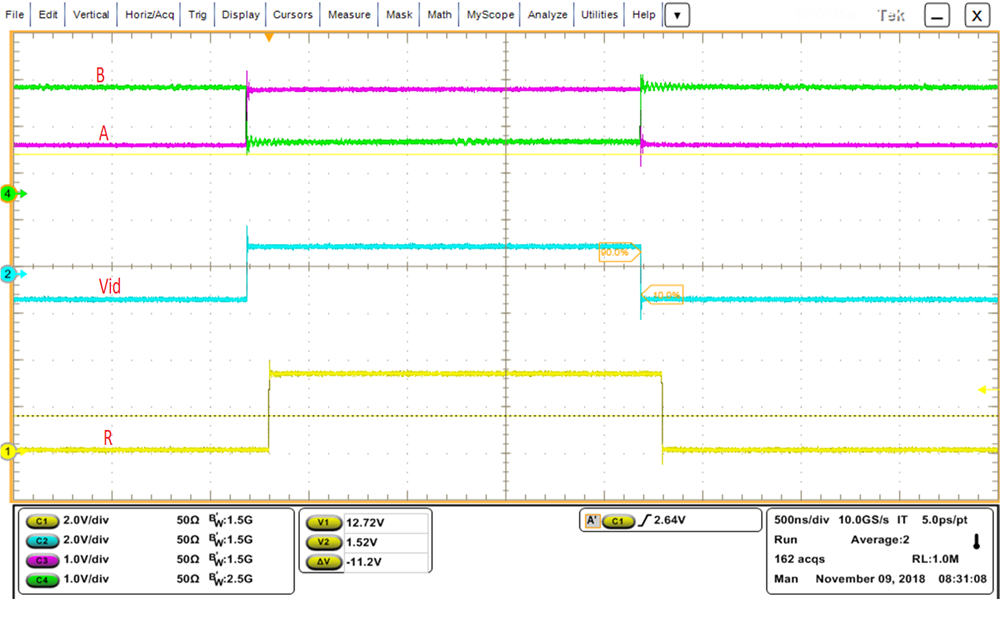
| VCC1 = 3.3 V | VCC2 = 5 V | TA = 25°C, |
| DE = GND1 | RE = GND1 | |
